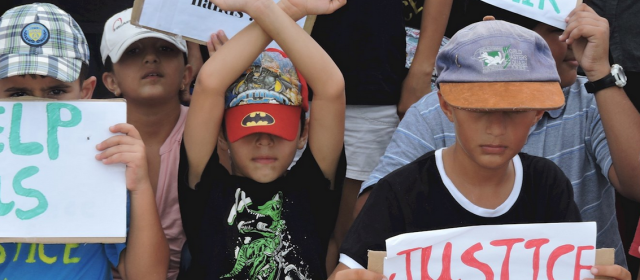
The Australian government has once again showed it is a law unto itself. The Papua New Guinea Supreme Court asked it to provide information by August 4 on how it planned to relocate the people in Manus Island detention centre. No one showed up to court.
PNG lawyer Ben Lomani, who has represented the refugees and asylum seekers in the Manus Island detention centre throughout the case, sent documents relating to compensation for the men on Manus Island to the Australian High Commission last year. He has still not received a reply.
The Supreme Court ruled in April that it is illegal to keep refugees without charge or trial locked up in Manus Island Detention Centre, but the Australian government has made no announcement or move to close the centre and move the men.
The Supreme Court is expected to hand down a decision on August 8 to clarify which country is responsible for the men in Manus Island and how to enforce the April decision.
The Australian government has ignored the case since it began, apparently believing that as it is happening in a poor, Third World country means it does not merit a response.
Behrouz Boochani, an Iranian journalist locked up in Manus Island detention centre, said in a Facebook post on August 4: “Australia did not turn up for the court today … This determination by the court should open the way for the lawyers to argue for the specific orders we have been seeking — the release of everyone and their return to Australia.”
There have been ongoing protests in the Manus Island detention centre since the April decision: August 4 was the 83rd day of protest. Each day brings new banners and signs, sometimes with cartoons and drawings.
Some of the signs read: “We accuse Australian Prime Minister of disrespecting PNG law”, “Political prisoners need your help”, “Cruel and harsh enough Malcolm Turnbull?”, “Freedom is our right”, “We accuse Kevin Rudd, Tony Abbott and Malcolm Turnbull of extreme human rights abuses” and “We say no to $20,000 refoulement bribes — we can not return, money cannot buy life”, a reference to the Australian government's offer to pay people to return to their home countries.
Kamil Hussain
Kamil Hussain is a 33-year-old Pakistani refugee who was on Manus Island with his partner and daughter. On August 2, he drowned in a waterfall in a freak accident. His friends say he was not suicidal.
Refugees in Manus Island Detention Centre held a vigil for Hussain on August 3 and have asked that his family's wish that his body be returned to Pakistan for burial be respected.
The PNG government said it does not have the facilities to repatriate his body to Pakistan and are insisting he be buried on Manus Island. The Australian government and its private contractors have refused to take any responsibility.
Boochani said on Facebook: "It is incredible that immigration want to bury him by force. It is immoral and inhumane. The Australian government is responsible and must send his body to Pakistan."
The Australian government spends about $300,000 a year detaining people in offshore detention, yet is refusing to pay for Hussain's body to be returned to his family.
The men on Manus offered to sell their mobile phones to pay for the repatriation, but now the Pakistani government has agreed to pay for the return of the body.
Amnesty Report
Amnesty International and Human Rights Watch released a joint report on August 2 called Australia: Appalling abuse, neglect of refugees on Nauru.
Drawn from interviews with 84 asylum seekers on Nauru, including children and several workers who were prepared to risk the consequences of speaking out, it paints a picture of the conditions on Nauru.
It documents deliberate neglect and refusal of service by contracted health providers: unhygienic, prison-like conditions people are forced to live in; physical and sexual abuse with the perpetrators going unpunished; and regular acts of self-harm.
It lays the blame firmly on the Australian government, calling this the desired result of the policy of offshore detention. It said: “Driving adult and even child refugees to the breaking point with sustained abuse appears to be one of Australia's aims on Nauru.”
In the report, senior director for research at Amnesty Anna Neistat said: “Few other countries go to such lengths to deliberately inflict suffering on people seeking safety and freedom.”
The New York Times and CNN ran articles on it, showing the growing international interest in Australia's detention system.
Nauru protests
August 4 marked 138 days of ongoing protests in Nauru detention centre. Asylum seekers, including children, held up hand-painted signs reading: “We Stand With Aboriginal Australia” in support of the campaign to close Don Dale Juvenile Detention Centre and end the torture of Aboriginal children in Australia's prisons.
It comes days after Warriors of Aboriginal Resistance, the organisers of a Melbourne rally calling for justice for the Don Dale children, said at the protest: "We called for all detention centres for incarcerating children to be shut down immediately. And we didn't forget about you mob in Manus and Nauru. We have the same enemy. Our freedom is your freedom. We speak of you at every rally. No justice, no peace.”
This solidarity between anti-racist struggles is heart-warming and crucial to ending racism and its ramifications, such as the torture of children in Don Dale and Nauru.
Like the article? Subscribe to Green Left now! You can also like us on Facebook and follow us on Twitter.